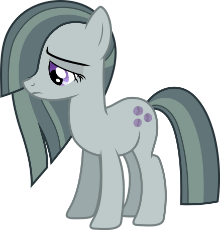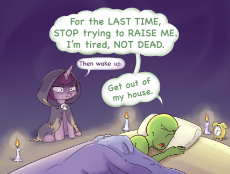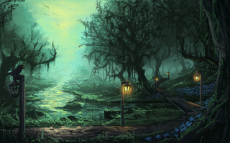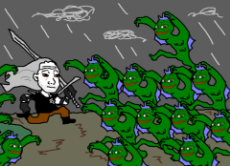In the south in the Kululu Forest, Posey searches for a lost instrument of war. In Baltimare, Kira establishes herself, while Silver enjoys a brief respite. In Hellquill, Amber prepares to play her music to the dictator of Hellquill. Elsewhere, trouble brews.
/vx/ - Videogames and Paranormal
1357 replies and 88 files omitted.
>>173428
She blinks, with a concerned expression
"... On second thought, I'm just fine with knowing where you are." And continues walking forward.
And now, the buildings change to rows of little buildings together like apartment buildings, with small paths leaning up to their doors
She blinks, with a concerned expression
"... On second thought, I'm just fine with knowing where you are." And continues walking forward.
And now, the buildings change to rows of little buildings together like apartment buildings, with small paths leaning up to their doors
>>173429
It's now in this neighborhood that Kira looks for signs marking vacancies or signaling some kind of offices, as she continues conversing with Neela.
"So, that crystal...do you know how to do deer magic?"
It's now in this neighborhood that Kira looks for signs marking vacancies or signaling some kind of offices, as she continues conversing with Neela.
"So, that crystal...do you know how to do deer magic?"
>>173430
"Huh? No."
She looks at Kira, and says
"Did you say you could do alchemy?"
Kira could roll search
"Huh? No."
She looks at Kira, and says
"Did you say you could do alchemy?"
Kira could roll search
>>173431
Search: Kira searches for a home or a way to acquire a home.
Meanwhile, she nods.
"Yes, though I'm more of I guess an apprentice alchemist. If I was a cleric in the tribe I would probably know more about alchemy and magic."
Search: Kira searches for a home or a way to acquire a home.
Meanwhile, she nods.
"Yes, though I'm more of I guess an apprentice alchemist. If I was a cleric in the tribe I would probably know more about alchemy and magic."
>>173434
"Oh, I see the office!"
After she points it out and starts making a bee line for the building, she answers Neela's question.
"Yes, they handle the preservation of the tribe's knowledge, keeping the tribe healthy with alchemy and curative magics, and the teaching of the snakelings. Really, they do a lot for the tribe, they're just as important as us hunters!"
"Oh, I see the office!"
After she points it out and starts making a bee line for the building, she answers Neela's question.
"Yes, they handle the preservation of the tribe's knowledge, keeping the tribe healthy with alchemy and curative magics, and the teaching of the snakelings. Really, they do a lot for the tribe, they're just as important as us hunters!"
>>173435
Kira has to push open a door, enter, and...
A cream coated unicorn at the desk goes "Ah!" And dives down
Neela:
"And so... hunting. What is that like, exactly?"
Kira has to push open a door, enter, and...
A cream coated unicorn at the desk goes "Ah!" And dives down
Neela:
"And so... hunting. What is that like, exactly?"
>>173436
"Oh, hang on Neela." She looks over at the unicorn who, like the mare in the pawn shop, seems to think a desk would be adequate cover in the case of her being hostile. Thankfully for both of them, Kira is the exact opposite of hostile.
"Hello? We would like to inquire about the availability of a townhouse."
"Oh, hang on Neela." She looks over at the unicorn who, like the mare in the pawn shop, seems to think a desk would be adequate cover in the case of her being hostile. Thankfully for both of them, Kira is the exact opposite of hostile.
"Hello? We would like to inquire about the availability of a townhouse."
>>173439
Kira can only see her ears, her eyes, and little bits of the top of her head
"I don't... Why do you ask?"
Kira can only see her ears, her eyes, and little bits of the top of her head
"I don't... Why do you ask?"
>>173442
Kira continues to beam a smile at her, and she nods.
"Yes, we want to rent a townhome...is there one available?"
Kira continues to beam a smile at her, and she nods.
"Yes, we want to rent a townhome...is there one available?"
>>173443
She looks at her with... well, it isn't a smile
"I think some of our tenants may have concerns being neighbors with... large..." She raises a hoof, evidently to point at Kira, but does not complete the sentence
She looks at her with... well, it isn't a smile
"I think some of our tenants may have concerns being neighbors with... large..." She raises a hoof, evidently to point at Kira, but does not complete the sentence
>>173444
Kira tilts her head.
"What's the concern? I've been vetted by Customs, and I can assure you I'm very friendly. My friend can actually confirm this: along the way we were stopped at a military checkpoint, and two of the soldiers actually pet me before we got permission to pass."
Kira tilts her head.
"What's the concern? I've been vetted by Customs, and I can assure you I'm very friendly. My friend can actually confirm this: along the way we were stopped at a military checkpoint, and two of the soldiers actually pet me before we got permission to pass."
>>173445
Now, she has the wide, toothy smile that is so common among ponies
"Well, tenants may be concerned about... living in a neighborhood with a... a giant snake. Whether it's... whether they are right or not, they may be... scared."
Now, she has the wide, toothy smile that is so common among ponies
"Well, tenants may be concerned about... living in a neighborhood with a... a giant snake. Whether it's... whether they are right or not, they may be... scared."
>>173446
Diplomacy: "Please ma'am, I assure you that we would be among the best tenants you have. Whatever concerns they may have at first, once they get to meet me and know me, would evaporate like the morning mist!"
[1d20-1 = (19-1) = 18]
Diplomacy: "Please ma'am, I assure you that we would be among the best tenants you have. Whatever concerns they may have at first, once they get to meet me and know me, would evaporate like the morning mist!"
[1d20-1 = (19-1) = 18]
>>173447
She raises her head, and looks over at the long snake-pony. Her muzzle is long and thin, and her ears twitch.
"We could consider it... But rent would need to be paid in full ahead of time, and with a deposit."
She raises her head, and looks over at the long snake-pony. Her muzzle is long and thin, and her ears twitch.
"We could consider it... But rent would need to be paid in full ahead of time, and with a deposit."
>>173448
Kira taps her hooves together excitedly, and her tongue flicks.
"Yay! No problem, just tell me the price!"
Kira taps her hooves together excitedly, and her tongue flicks.
"Yay! No problem, just tell me the price!"
Posey will make some checks to see what she knows about what sorts of monsters or other hazards lurk in these parts, as well as any other hidden mysteries.
Arcana, for magical beasts/constructs/dragons (or anything else magical)
[1d20+11 = (6+11) = 17]
Religion, for Undead (or anything else holy/unholy)
[1d20+9 = (4+9) = 13]
Pic unrelated
Arcana, for magical beasts/constructs/dragons (or anything else magical)
[1d20+11 = (6+11) = 17]
Religion, for Undead (or anything else holy/unholy)
[1d20+9 = (4+9) = 13]
Pic unrelated
>>173414
"Of course, sir," Amber answers.
She turns to the others and whispers, "Shall we play Shornberg's Verklarkte Nacht?"
"Of course, sir," Amber answers.
She turns to the others and whispers, "Shall we play Shornberg's Verklarkte Nacht?"
>>173457
He speaks to those around him.
"These griffins will stay here: Turmfalke, Schumann, Mitter, Dolch." Two of the six griffins stand up, and start to leave, as do a small clawful who stood off to the left, and had been noticed by Amber until they began to move."
Then he moves his chair forward, and leans over the table, clasping his claws together and placing his head over them. He looks intently at Amber, then Erich.
Erich nods, and places his bow to the Violin. He is familiar with the peace.
He speaks to those around him.
"These griffins will stay here: Turmfalke, Schumann, Mitter, Dolch." Two of the six griffins stand up, and start to leave, as do a small clawful who stood off to the left, and had been noticed by Amber until they began to move."
Then he moves his chair forward, and leans over the table, clasping his claws together and placing his head over them. He looks intently at Amber, then Erich.
Erich nods, and places his bow to the Violin. He is familiar with the peace.
>>173458
Reminds me of that Downfall scene. Fortunately, Hellheim is not under siege, at least not yet.
https://youtu.be/U-pVz2LTakM
Although it is not yet evening, Amber and her closest–really, only–friends play a composition titled "Transfigured Night." As a sextet, it could not be done justice with a few ordinary musicians, but fortunately those present are anything but ordinary. The song starts out gently, with sweet and slow chords reminiscent of the approach of dusk. It is not long at all until Shornberg's more unique and esoteric style subtly creeps into the music as in waves before enshrouding the listeners in its chromaticism, returning occasionally to softer clarity. Shornberg is a quite subversive composer and although the piece is nominally a romance, there are deeper intonations evoking paranoia.
What is love of what is close, for example, but a hatred of the outside? Those damned ponies are a threat to Hellquill, which is all that stands between them and the griffon heartlands. The music's violence suggests what should be done, while its calmer interludes brood over how they overpopulate and despoil what could be productive land. And of course there are sympathizers and traitors everywhere, who lurk in the shadows. Such sentiments are new to Amber and seem to spring from the music itself. Near the middle a part of her is astonished and repelled from such overwhelming thoughts, and although she cannot stop playing, during a quieter and more compatible interlude she desperately starts playing a different song.
https://youtu.be/7vdgZAJVnes
The style, which would be called tintinnabuli had the term been coined, at first feeds off a smaller rhythm in Verklarte Nacht and takes the center stage, with its waves evoking harmony and peace. This at first intertwines with the first composition, but soon enough Shornberg's chaos attempts to overpower it while the new composition recedes. The new song is not outdone for long, and although not as loud its tranquil melody rings clearly. Shornberg's rage rings on before mellowing into harmony as well, while the second piece raises vivid and gorgeous protestations that do not seem of this world. Amber herself is divided along these pieces, and her talons seamlessly switch between one composition and the next, if not combining the two. The two, while euphonically combining at points, clash in dissonance at times, with one piece at first feeding into earthly ambition and then dwelling in melancholy while the other has a more celestial bent that chides the other. Shornberg may be subversive, but how could one hear his timeless opposition and not feel guilt over intended wrongs? Verklarte Nacht finishes with a vaguely pastoral phrase before finishing alongside the other work.
Amber is left exhausted by the end, confused and not entirely sure as to what transpired. What is even more uncertain is how the leader of Hellquill has received this performance, since dissonance in esoteric music is dangerous indeed and can lead to unexpected consequences.
[Read more] Reminds me of that Downfall scene. Fortunately, Hellheim is not under siege, at least not yet.
https://youtu.be/U-pVz2LTakM
Although it is not yet evening, Amber and her closest–really, only–friends play a composition titled "Transfigured Night." As a sextet, it could not be done justice with a few ordinary musicians, but fortunately those present are anything but ordinary. The song starts out gently, with sweet and slow chords reminiscent of the approach of dusk. It is not long at all until Shornberg's more unique and esoteric style subtly creeps into the music as in waves before enshrouding the listeners in its chromaticism, returning occasionally to softer clarity. Shornberg is a quite subversive composer and although the piece is nominally a romance, there are deeper intonations evoking paranoia.
What is love of what is close, for example, but a hatred of the outside? Those damned ponies are a threat to Hellquill, which is all that stands between them and the griffon heartlands. The music's violence suggests what should be done, while its calmer interludes brood over how they overpopulate and despoil what could be productive land. And of course there are sympathizers and traitors everywhere, who lurk in the shadows. Such sentiments are new to Amber and seem to spring from the music itself. Near the middle a part of her is astonished and repelled from such overwhelming thoughts, and although she cannot stop playing, during a quieter and more compatible interlude she desperately starts playing a different song.
https://youtu.be/7vdgZAJVnes
The style, which would be called tintinnabuli had the term been coined, at first feeds off a smaller rhythm in Verklarte Nacht and takes the center stage, with its waves evoking harmony and peace. This at first intertwines with the first composition, but soon enough Shornberg's chaos attempts to overpower it while the new composition recedes. The new song is not outdone for long, and although not as loud its tranquil melody rings clearly. Shornberg's rage rings on before mellowing into harmony as well, while the second piece raises vivid and gorgeous protestations that do not seem of this world. Amber herself is divided along these pieces, and her talons seamlessly switch between one composition and the next, if not combining the two. The two, while euphonically combining at points, clash in dissonance at times, with one piece at first feeding into earthly ambition and then dwelling in melancholy while the other has a more celestial bent that chides the other. Shornberg may be subversive, but how could one hear his timeless opposition and not feel guilt over intended wrongs? Verklarte Nacht finishes with a vaguely pastoral phrase before finishing alongside the other work.
Amber is left exhausted by the end, confused and not entirely sure as to what transpired. What is even more uncertain is how the leader of Hellquill has received this performance, since dissonance in esoteric music is dangerous indeed and can lead to unexpected consequences.
1715257942.png (199.4 KB, 876x912, sad_marble_pie_by_gamemasterluna_d9eofn1-pre.png)

>>173468
It is said that one morning Dark Star went out for cigarettes… and never came back. Lunar Nadir was kicked out of college for non-payment. Tricky Truffle and Succulent Sorrel eventually took over the room at the tavern after finally getting jobs and paying rent, and several little ponies felt themselves without a friend. One bout pony tells of a great hero who could sling guns, and take down changelings, griffins, and criminals alike, and swears he will return when the world most needs him, like King Arthur from his slumber on Avalon - but she is increasingly dismissed as a relic of a bygone era, and marginalized from society.
But Baltimare… Baltimare continues to evolve and progress. With the disappearance of the edgy pony, racism went down 30% overnight. The forces of reaction were overcome. Social mores continued to change and enlighten, and the formerly pony city of Baltimare became even more enriched with a rainbow of new creatures, and acceptance for behaviors previously shunned and kept in hiding.
It is said that one morning Dark Star went out for cigarettes… and never came back. Lunar Nadir was kicked out of college for non-payment. Tricky Truffle and Succulent Sorrel eventually took over the room at the tavern after finally getting jobs and paying rent, and several little ponies felt themselves without a friend. One bout pony tells of a great hero who could sling guns, and take down changelings, griffins, and criminals alike, and swears he will return when the world most needs him, like King Arthur from his slumber on Avalon - but she is increasingly dismissed as a relic of a bygone era, and marginalized from society.
But Baltimare… Baltimare continues to evolve and progress. With the disappearance of the edgy pony, racism went down 30% overnight. The forces of reaction were overcome. Social mores continued to change and enlighten, and the formerly pony city of Baltimare became even more enriched with a rainbow of new creatures, and acceptance for behaviors previously shunned and kept in hiding.
1715261003.jpg (340.4 KB, 768x616, B26FC7AE13CFB136F579BB3F943394F0-348570.jpg)

1715268630.png (1.5 MB, 1715x1300, FD655537513A082F7460040DCD9FED36-1581225.png)

>>173474
I guess I'll roll my perception stuff
Posey keeps to the trees, trying to minimize direct sun exposure.
Search to look for tracks/traps
[1d20+3 = (10+3) = 13]
Survival to follow them
[1d20+1 = (6+1) = 7]
Spot to look for creatures
[1d20+3 = (7+3) = 10]
Listen to hear them
[1d20+3 = (18+3) = 21]
[Read more] I guess I'll roll my perception stuff
Posey keeps to the trees, trying to minimize direct sun exposure.
Search to look for tracks/traps
[1d20+3 = (10+3) = 13]
Survival to follow them
[1d20+1 = (6+1) = 7]
Spot to look for creatures
[1d20+3 = (7+3) = 10]
Listen to hear them
[1d20+3 = (18+3) = 21]
>>173473
I'd like to see Dark Star again, someday
>>172791 →
Silver smiles widely, and makes a happy little whinny noise as she scritches his chin.
"Heavenly. As to be expected when you are with griffon goddess."
I'd like to see Dark Star again, someday
>>172791 →
Silver smiles widely, and makes a happy little whinny noise as she scritches his chin.
"Heavenly. As to be expected when you are with griffon goddess."
>>173534
Her eyes are again decidedly lidded, and with the sight of her slim, cat-like body from waist to face, Silver is affirmed in her description of her as a "goddess."
"That's right" She says, nodding slowly, and purring
>>173449
"Well" The mare stares at her. "There's a recently renovated unit that may be available for 700 a month."
Her eyes are again decidedly lidded, and with the sight of her slim, cat-like body from waist to face, Silver is affirmed in her description of her as a "goddess."
"That's right" She says, nodding slowly, and purring
>>173449
"Well" The mare stares at her. "There's a recently renovated unit that may be available for 700 a month."
>>173558
Silver once again rubs his muzzle against her smooth beak.
"You make cutest noises when you are happy, you know that?"
Silver once again rubs his muzzle against her smooth beak.
"You make cutest noises when you are happy, you know that?"
>>173558
"We'll take it!"
Kira says this with basically no hesitation, and begins counting out 700 Bits.
"We'll take it!"
Kira says this with basically no hesitation, and begins counting out 700 Bits.
>>173561
Her batting at his muzzle may or may not result in a boop, which may or may not result in him scroonching. He lets out a happy little whinny as proof of her claim.
"I am not sure I ever saw myself in this position even just year ago, but I am glad that this is where I ended up, in embrace of my griffon goddess."
Her batting at his muzzle may or may not result in a boop, which may or may not result in him scroonching. He lets out a happy little whinny as proof of her claim.
"I am not sure I ever saw myself in this position even just year ago, but I am glad that this is where I ended up, in embrace of my griffon goddess."
>>173564
At this turn of mood for his Jubee, Silver buries his head into the soft plumage of her neck and snuggles in. He can still be heard clearly, even if his voice is perhaps slightly muffled by feathers.
"I know it is not what you wanted, but I hope I can help make this as good of situation for you as I can."
At this turn of mood for his Jubee, Silver buries his head into the soft plumage of her neck and snuggles in. He can still be heard clearly, even if his voice is perhaps slightly muffled by feathers.
"I know it is not what you wanted, but I hope I can help make this as good of situation for you as I can."
>>173564
Kira adds another 300 to the Bits she's counting, bringing the total up to 1,000 Bits before placing them on the counter.
Kira adds another 300 to the Bits she's counting, bringing the total up to 1,000 Bits before placing them on the counter.
>>173566
She looks at the pile of bits
“That’s… a lot of bits to have on you… okay then.” And she looks back to Kira
“But, well, we don’t really allow exotic animals…”
>>173565
Jubilosa takes her claw, and starts rubbing around the base of his right ear.
“Don’t worry.” She says. “You have.” Though she seems troubled, she makes another “purr”
>>173572
the description is hard to do on mobile
She looks at the pile of bits
“That’s… a lot of bits to have on you… okay then.” And she looks back to Kira
“But, well, we don’t really allow exotic animals…”
>>173565
Jubilosa takes her claw, and starts rubbing around the base of his right ear.
“Don’t worry.” She says. “You have.” Though she seems troubled, she makes another “purr”
>>173572
the description is hard to do on mobile
>>173573
Kira looks at the pony with big, hopefully adorable snake eyes.
"Please, ma'am, it's not as though we can't manage our own needs or are some base animals like you would see out in the wild. We are fully sapient, just like any pony. We won't cause you or your complex any trouble."
Kira looks at the pony with big, hopefully adorable snake eyes.
"Please, ma'am, it's not as though we can't manage our own needs or are some base animals like you would see out in the wild. We are fully sapient, just like any pony. We won't cause you or your complex any trouble."
>>173573
Silver's ear twitches as Jubilosa no doubt marvels at how even his pony ears are fluffy.
Sense Motive: Silver tries to gain a peak into his griffon's head space, hopefully to know more specifics about what's troubling her.
[1d20+3 = (14+3) = 17]
Silver's ear twitches as Jubilosa no doubt marvels at how even his pony ears are fluffy.
Sense Motive: Silver tries to gain a peak into his griffon's head space, hopefully to know more specifics about what's troubling her.
[1d20+3 = (14+3) = 17]
[Reply] [Last 50 Posts] [Last 100 Posts] [Last 200 Posts]
You are viewing older replies. Click [View All] or [Last n Posts] to vew latest posts.
Clicking update will load all posts posted after last post on this page.
Post pagination: [Prev] [1-50] [51-100] [101-150] [151-200] [201-250] [251-300] [301-350] [351-400] [401-450] [451-500] [501-550] [551-600] [601-650] [651-700] [701-750] [751-800] [801-850] [851-900] [901-950] [951-1000] [1001-1050] [1051-1100] [1101-1150] [1151-1200] [1201-1250] [1251-1300] [1301-1350] [1351-1400] [1401-1407] [Next] [Live (last 50 replies)]
1407 replies | 96 files | 179 UUIDs | Page 6
[Add to Thread Watcher]



 Ex: Type :littlepip: to add Littlepip
Ex: Type :littlepip: to add Littlepip  Ex: Type :eqg-rarity: to add EqG Rarity
Ex: Type :eqg-rarity: to add EqG Rarity 